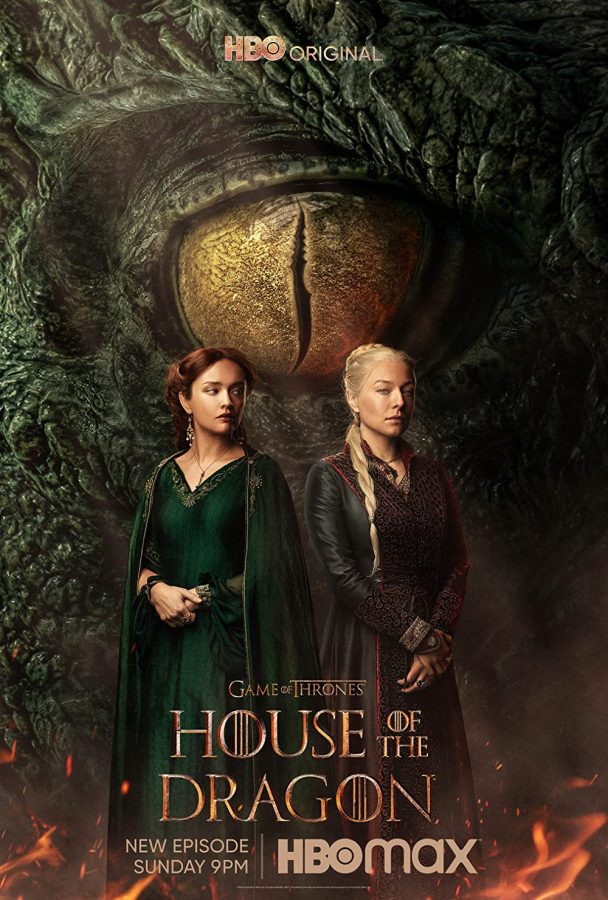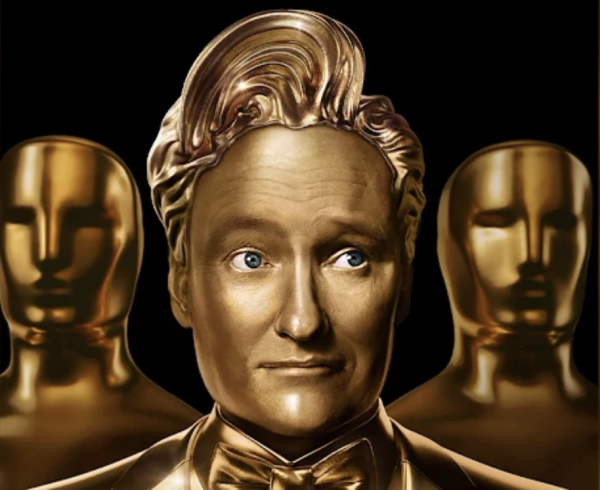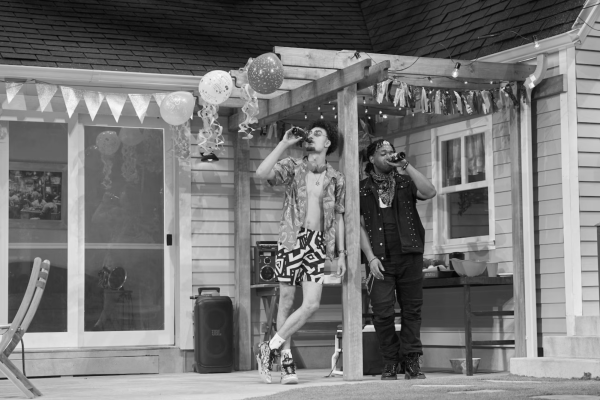Dreary House of the Dragon Season Redeemed by Finale
Photo Courtesy of HBO through IMDb
Olivia Cooke and Emma D’arcy pose in character in a poster for the new series House of the Dragon.
Yes, it is a show about incest. No, it’s not only about incest, but you would be forgiven for believing that. House of the Dragon chronicles the stories of the Targaryen family 200 years before the events of Game of Thrones, and if we’ve learned anything from the time we’ve already spent in Westeros, incest is surprisingly commonplace. While too much focus on incest would deter much of the potential viewership, House of the Dragon presents a rare instance where incest isn’t the biggest issue on screen. Bustling with stylish sets, ornate costumes, and intricately designed and rendered dragons, HBO’s latest adventure in Westeros presents a visually spectacular story mired in an ironically soulless first season.
The problem with this first season is the sheer span of time it attempts to cover in the first five episodes. The first eight episodes each feature significant time jumps, and by episode six, the two main characters have aged into entirely different actors. Besides losing the charm and chemistry of Milly Alcock and Emily Carey, the uneven pacing of the season bars it from building any momentum or actual attachment to these characters. Immensely important events happen off screen while characters make complete turnarounds in their motivations and behaviors, making the start of each episode almost impossible to follow. As a result, I found very little motivation to keep up week to week, becoming so utterly bemused after episode four that I restarted Game of Thrones … from the lackluster season seven.
By rapidly progressing through the decades, the show attempts to give the audience a crash course in the long and peaceful rule of King Viserys I of House Targaryen. Paddy Considine brings Viserys to life with a tragic but passionate rendition of the character, conjuring a man so uninspired to rule that the Iron Throne physically rejects him each time he sits on it. It was genuinely a feast of theatrical plenty to watch this patriarch of the kingdoms age and fall into decrepitude as the years passed, never once losing his spirit even as he was plagued by pain and anxiety. He doesn’t carry the solemn gravity of Ned Stark or the rambunctious callousness of Robert Baratheon, nor is he cruel like Joffrey or fiercely intelligent like Cersei Lannister — he just is, and that simplicity works for him. Considine leaves a deep emotional impression on the audience and delivers a regal performance that is the only true benefactor of the regular time jumps.
Poor plot development aside, the core premise of the series is, once again, a war for the Iron Throne. Politicking over some ultimate seat of power as a genre of television has been overcooked to a crisp by the 2010s obsession with shows like Game of Thrones, House of Cards, and Scandal, just to name a few. Those shows were gripping and tense, steadily paced to effectively uncover secrets even as new mysteries were revealed. House of the Dragon enters into the same genre without any of the intrigue or unique style that made its predecessors watchable, leaving the audience to rely solely on the sunk cost of having watched Game of Thrones. For eight long weeks, the viewing experience was dreary, formulaic, uninspired, and disappointing.
Then episodes nine and 10 rolled out. For the first time, I set aside my phone and sat glued to the screen as the stakes suddenly became personal and the pot finally came to a boil. By the end of the finale, fire and blood had spilled into Westeros and left me enraptured. The stars aligned as all of the best elements of the show rallied on center stage and pulled together some of the highest quality Thrones universe content. The drama, tension, grandeur, pacing, and editing synced up in impeccable fashion and finally gave me what I’d been waiting for. Ramin Djawadi’s soundtrack also reared its fiery head in full force in the finale, both calling back to Danaerys’ theme and introducing something altogether new that was equally iconic. Without giving too much away, I would argue that these two episodes set up a second season of the show that genuinely excites me.
Despite the promise of a second, assuredly better season if showrunner Ryan Condal manages to stick the landing, the largely disappointing nature of three-quarters of the first season cannot be ignored. My advice to interested but somewhat apprehensive viewers is to skip ahead to episode six and catch up on the rest through Google, unless you are particularly intrepid and willing to commit to the long haul. I can’t in good conscience encourage you to watch this show for just two episodes, so I won’t. Instead I’d recommend rewatching Game of Thrones from the beginning, and pacing yourself so well that by the time you finish season five of the original, all seasons of House of the Dragon are ready to binge — approximately six years from now.











